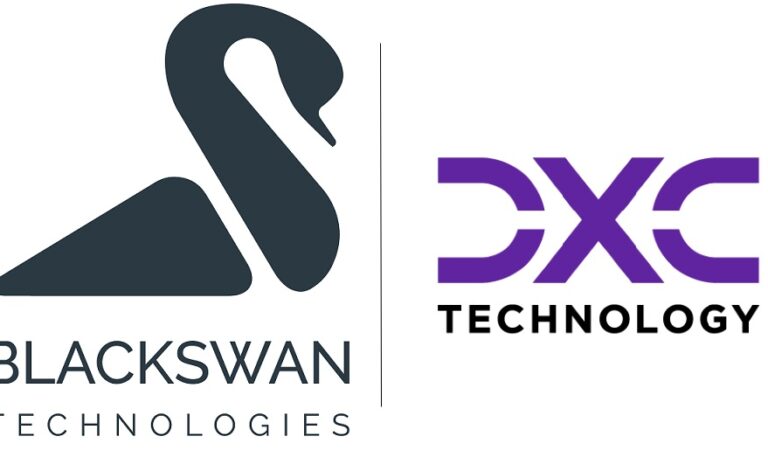
Mar. 15, 2021
Legal Digital Transformation: Achieving Strategic Value and Operational Efficiency
Authors: Nadee Wije & Scott Lichtman @BlackSwan Technologies
Digital transformation is rapidly changing the way organisations operate across multiple industries and functional areas. In spite of growing regulatory requirements and day-to-day obligations, corporate legal departments are faced with an urgent need to innovate and optimise operations in order to sustain the effectiveness of their organisations. Through digital transformation, they can reduce current task load dramatically, liberating time to conceive and implement new value-added services.
A recent survey by Wolters Kluwer and the European Company Lawyers Association (ECLA) found that 85% of legal departments across Europe are involved with digital transformation. The survey also revealed that companies with revenue exceeding €1 billion are more heavily prioritising the usage of analytics versus smaller companies.
However, roadblocks to transformational success have been prevalent among legal departments. Gartner recently reported that more than half of legal transformation projects fail to meet the expectations of general counsel (GC), in terms of quality, budget, and overall satisfaction. These failures are largely due to a lack of prioritisation and support. Legal staff cite ambiguity about the strategic value of transformation projects, intensive existing workload consuming their time, and limited confidence in guiding the application of the latest technologies. Interestingly, even tactical projects such as document automation and e-discovery often are deferred, according to Wolters Kluwer.
Designing Successful Legal Digital Transformations
Fortunately, most of the promise, and many of the concerns, surrounding digital transformation can be successfully addressed with active leadership combined with the latest AI-powered, agile enterprise software.
Proactively addressing risks. Law departments are often reactive when responding to evolving risks posed by business partnerships and market dynamics. However, with digital tools and techniques such as adverse media monitoring about one’s own brand, partners and customers, law departments can be more proactive at identifying emerging risks and deriving recommendations for sister departments including marketing and operations. AI techniques such as natural language processing and machine learning are applicable in this context.
Optimising resource allocation. Through AI-based automation of data collection and preliminary analysis, legal staff can free up resources from tedious tasks to focus on work that requires higher levels of creativity. A study by Deloitte shows that AI-driven process automation is a net contributor to jobs in legal departments, and it increases productivity while simultaneously improving staff satisfaction and engagement. Contextual analytics is another AI technique that significantly accelerates the handling of legal documents. For example, through AI-powered data capturing and parsing, a BlackSwan Technologies client reduced staff touch-time on regulatory documents by 80%.
Facilitating enterprise-wide collaboration. Isolated digitisation of legal services can lead to a disconnect from an enterprise’s over-archiving goals and therefore diminish the strategic impact of legal digital transformation. To preempt this, successful GCs and Chief Legal Officers emphasise designing a collaborative digital strategy with the rest of the enterprise. For instance, legal departments can participate in the adoption of a unified, enterprise-wide data repository and search capability that includes information pertaining to contract breaches, delays, payment issues, etc. AI technologies, including a “knowledge graph” to represent universal data about one’s business, can be applied to capture meaningful insights while sharing knowledge across the organisation. An example of this synergy is reviewing contract terms for errors and acceptability, then working with other departments to assess the fulfilment of contract obligations and coordinating findings with financial performance and customer satisfaction reports.
Accelerating transformation projects. To execute successful digital transformations, legal departments need to accelerate transformation projects in order to prevent them from entering a “nadir of disillusionment”. Although digital transformation projects could drag on for months or even years, by transferring the tasks of business customisation to legal departments, with less dependency on IT, innovative systems can be deployed within months. In fact, it’s possible for an analytically-oriented legal staff to build an AI-based, digitally transformative proof-of-concept model in a single sitting, and run a full prototype of the application within weeks.
BlackSwan Technologies’ ELEMENT™ for Legal Departments
BlackSwan Technologies’ ELEMENT™ is AI-powered, cloud enterprise software, trusted by world-leading organisations. Legal departments in enterprises that leverage ELEMENT to drive digital transformation can easily build a customised application in rapid fashion, without having to code or rely heavily on the IT department. ELEMENT can gather and interpret legal information from thousands of public sources across multiple jurisdictions, including case laws, statutes, regulations, news articles, and case documents. The built-in analytics and data visualisation tools provide valuable insights in easily accessible formats. Through workflows and alerts, staff can automate tedious tasks and focus on more creative and complex work while enhancing collaboration across teams.
With ELEMENT, legal departments can apply advanced intelligence to:
- Monitor potential risks associated with stakeholders in real-time to limit exposure and mitigate damages
- Review contract terms for errors and acceptability, then assess performance to gauge the fulfilment of contract obligations
- Discover, index, and analyse legally-admissible documents from multiple sources and more accurately determine the relevance
- Build a consolidated repository of internal corporate knowledge and more intelligently process queries and prioritise search results
To learn more about ELEMENT for your digital transformation initiative, click here.


